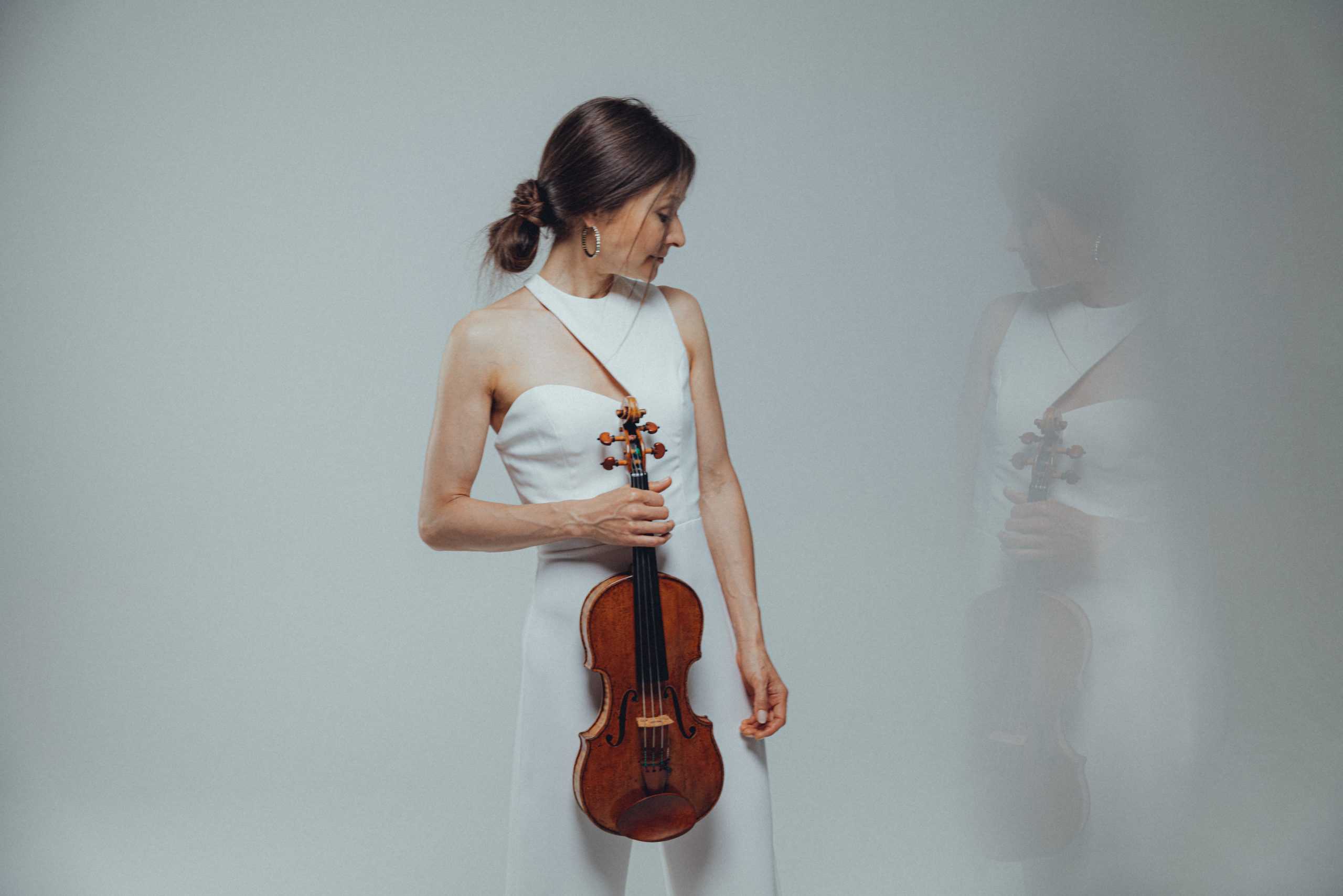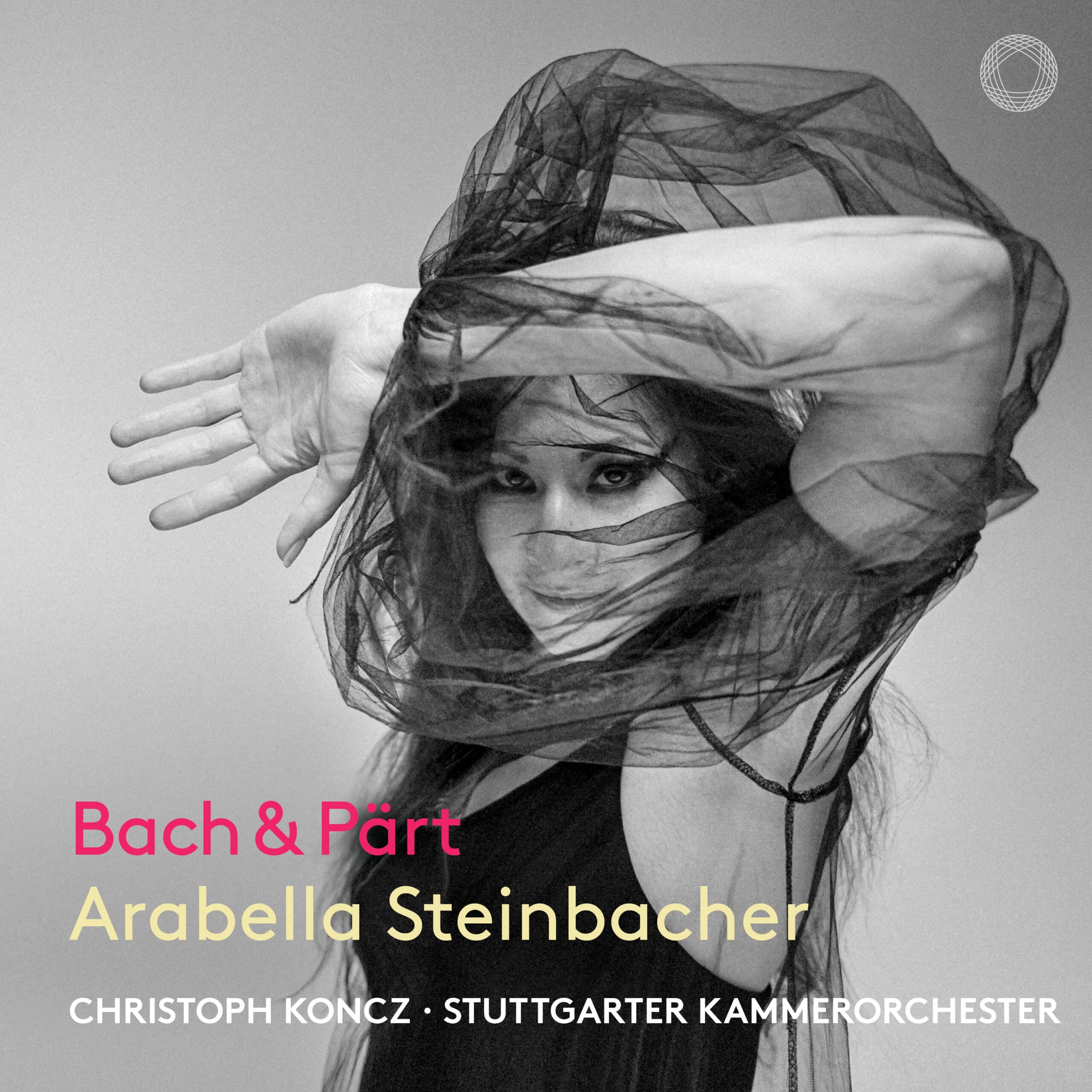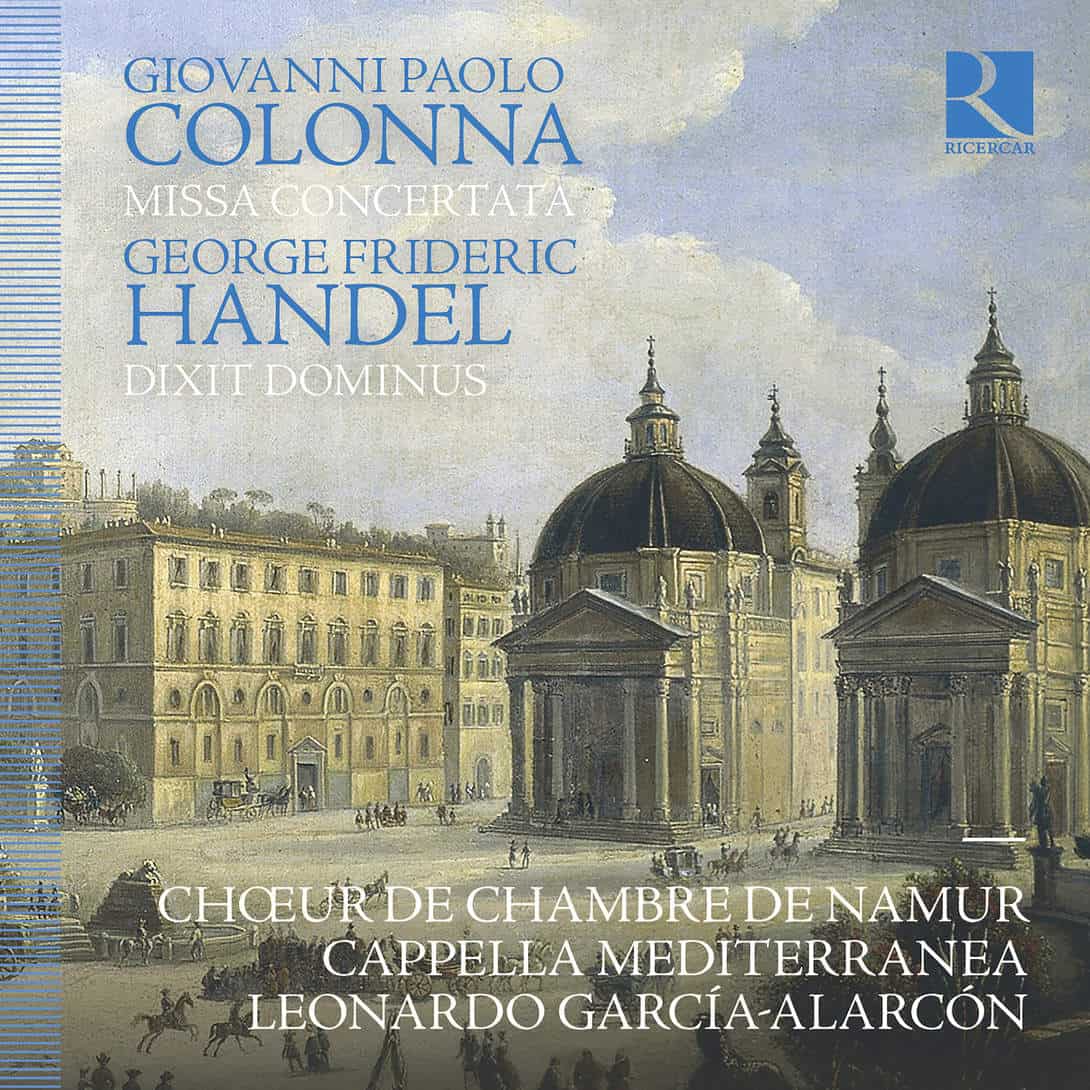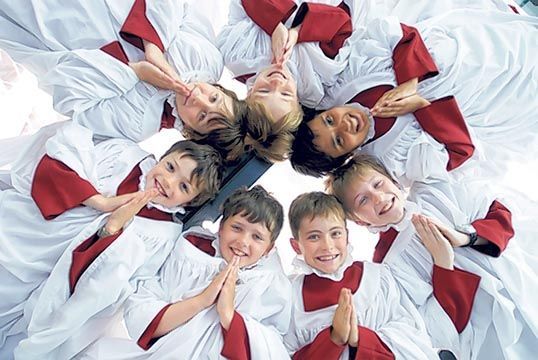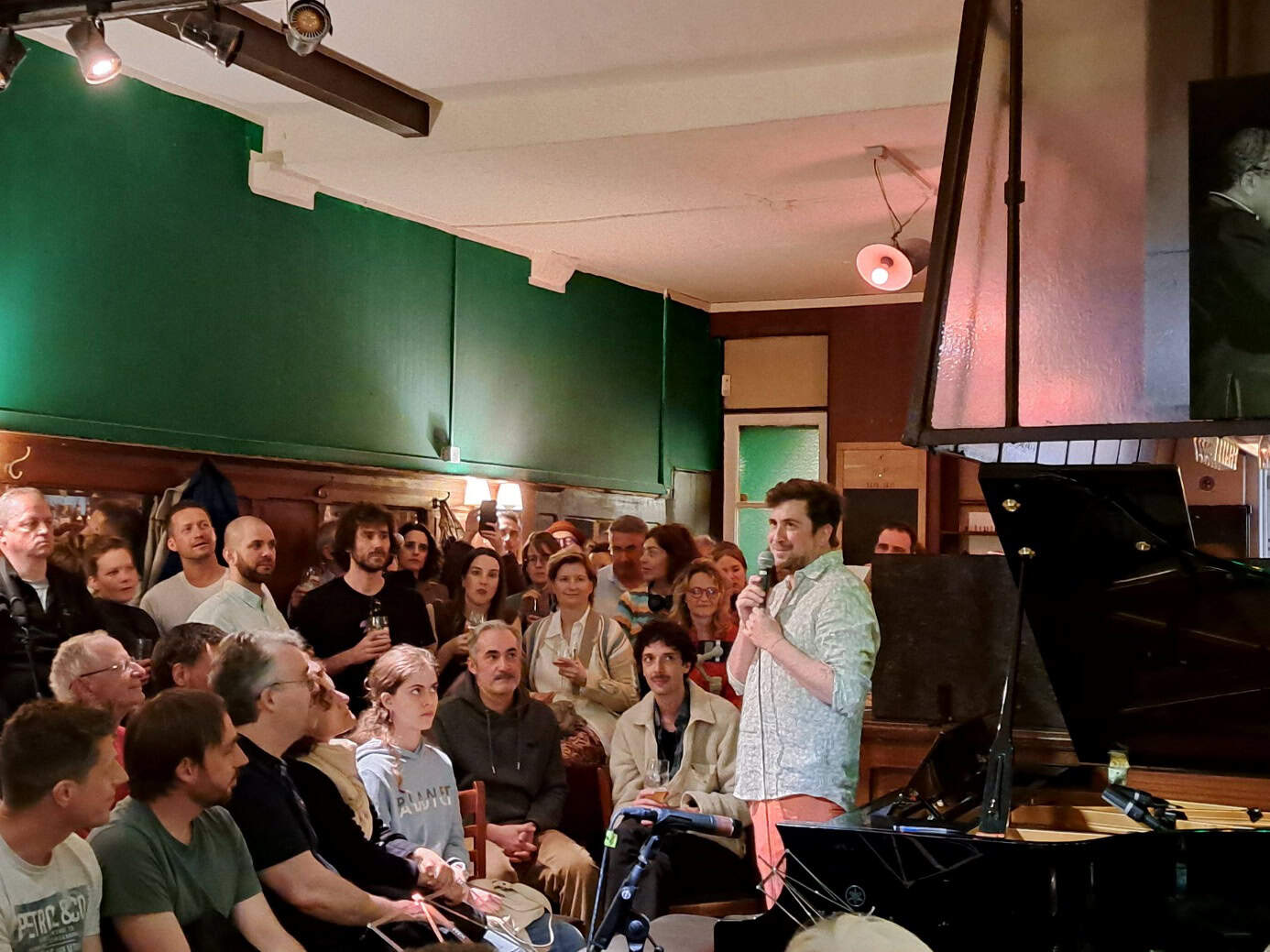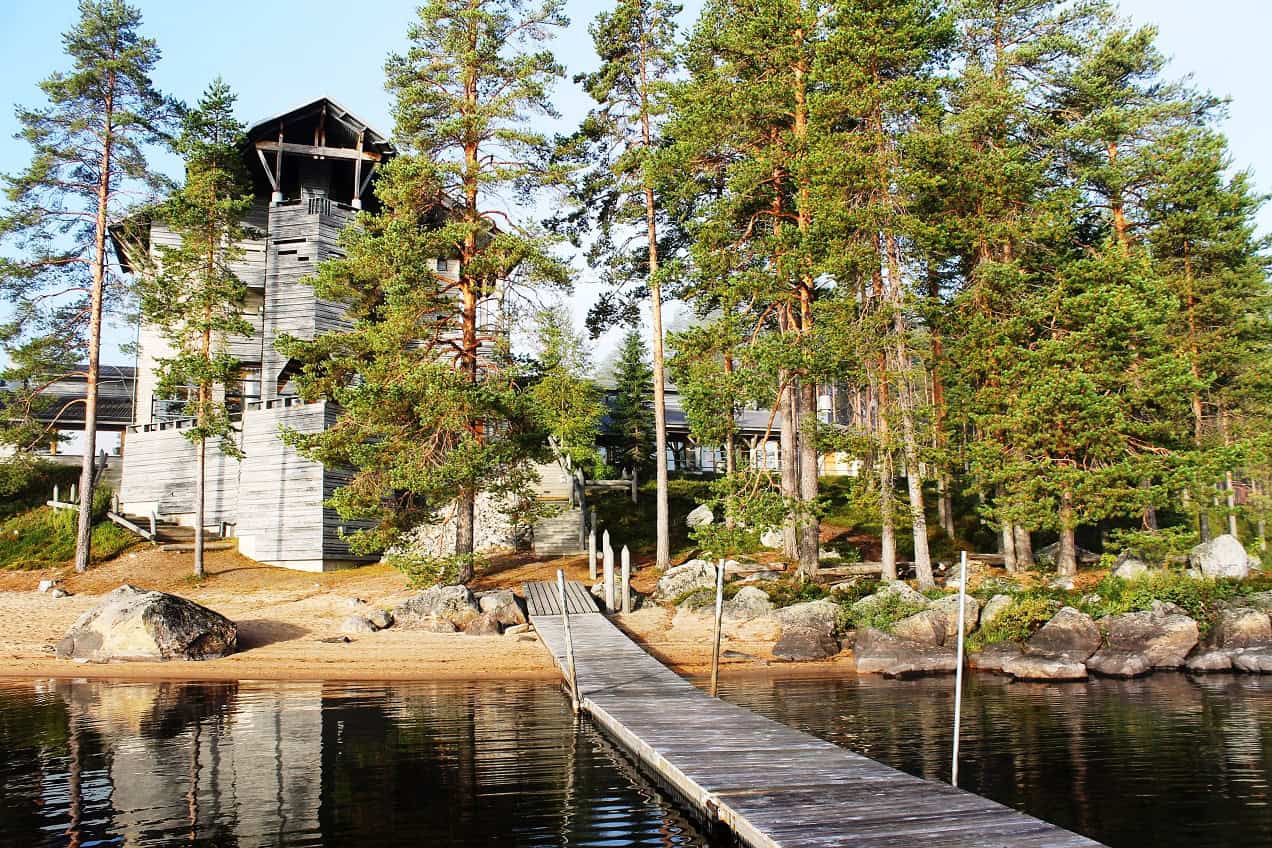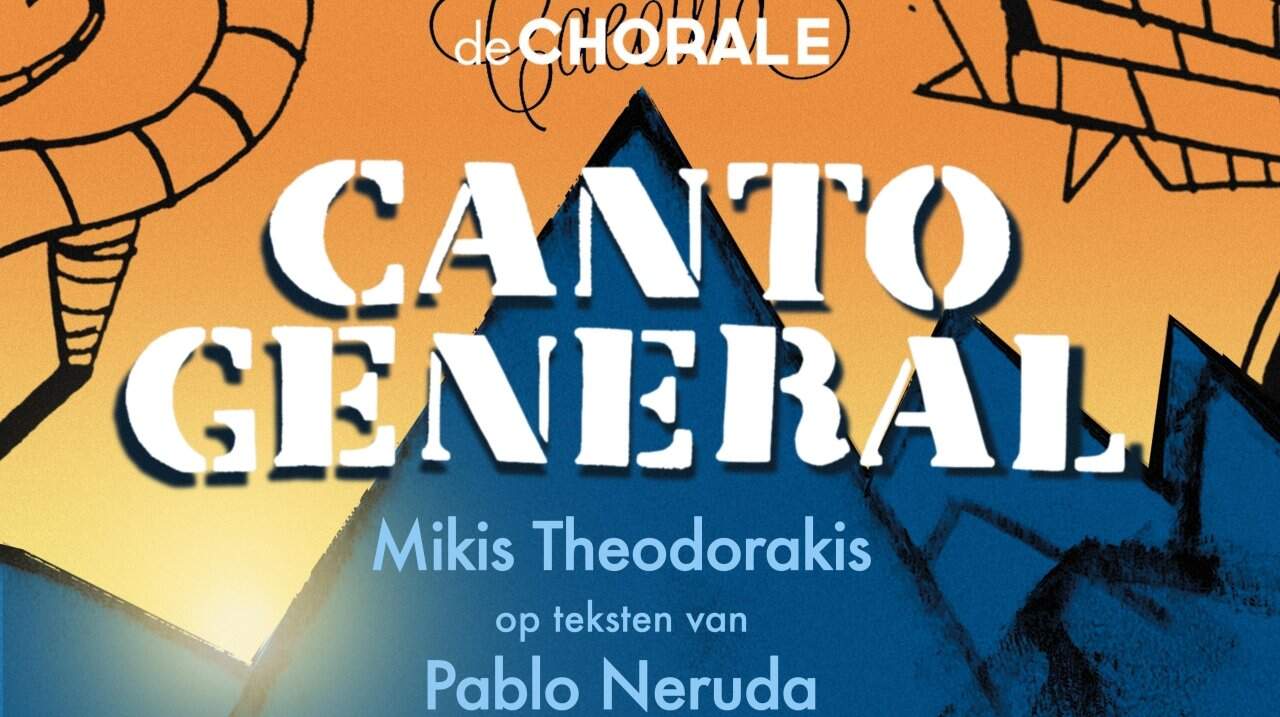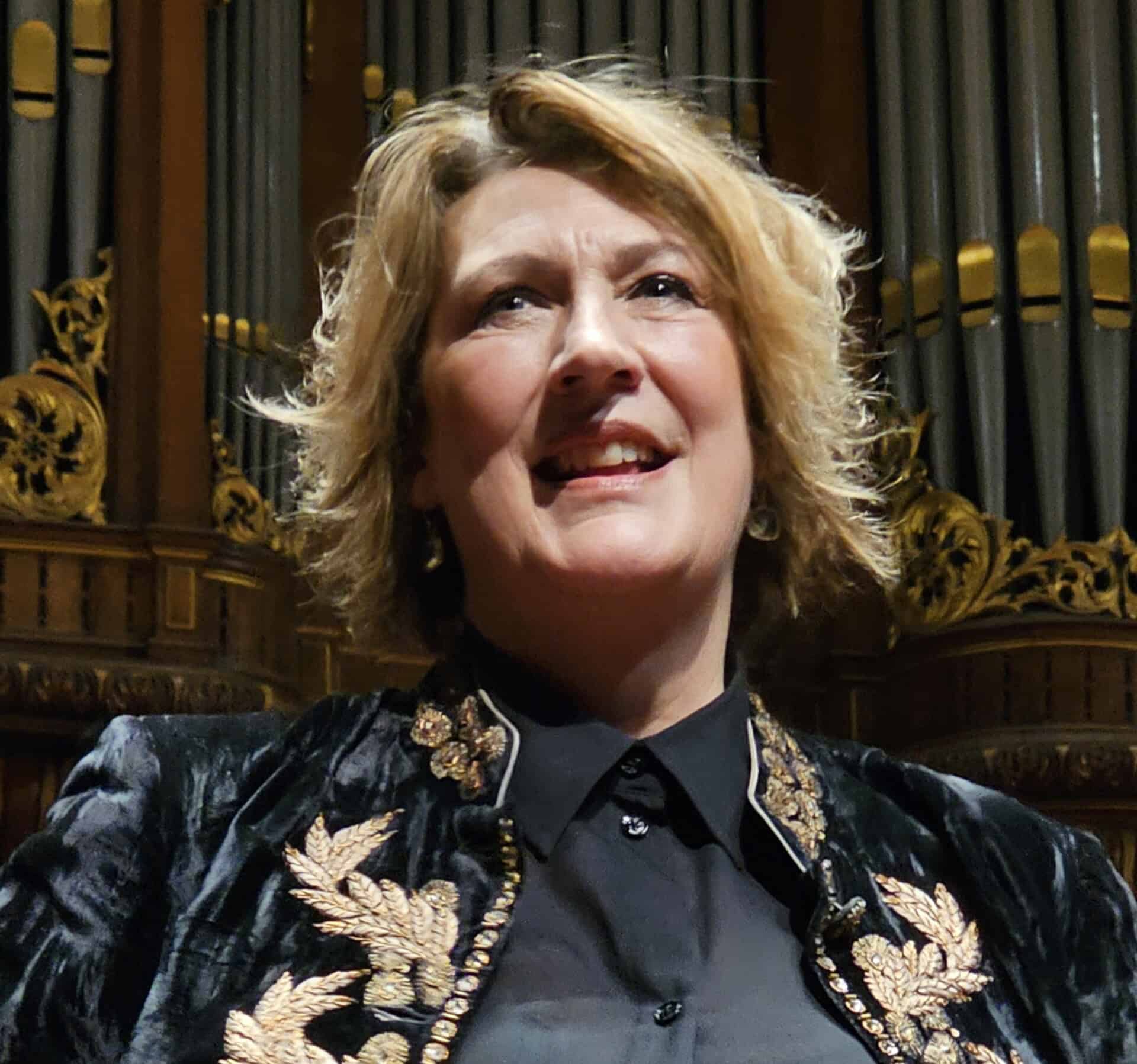The multiple award-winning violinist Arabella Steinbacher is back with a new album. Together with violinist Christoph Koncz and the Stuttgarter Kammerorchester, she brings a personal program and presents works for violin and orchestra by Johann Sebastian Bach and Arvo Pärt. These two composers may be centuries apart, but for Steinbacher, they have a spiritual and sacred origin in common, and their music resonates deeply with her. It’s an album that makes the listener heal through music…
In your new album, you combine the music of Johann Sebastiaan Bach (1685-1750) and Arvo Pärt (°1935). It’s quite a remarkable combination.
For me, Bach has always been a big treasure to me. I believe he is one for many musicians. Especially the Violin Concerto in A Minor, BWV 1041 has a special place in my heart. I connect it with many childhood memories. The second movement, the “Andante”, is excusably the reason why I continued playing the violin. I was four years old and from the first time I heard it, I loved it so much. I started violin lessons when I was three but when I heard that piece of music, I knew I wanted to continue playing. Of course, I didn’t know what it meant to be a professional musician yet. But when I heard it and then learned to play it myself, I knew I wanted to do this all my life. So it’s a very personal piece.
As is the Double Violin Concerto in D Minor, BWV 1043 as well. It’s one of the pieces I learned at a young age. It brings me back to the group lessons when I was a child. It was one of the pieces in the book of the Suzuki method. So from an early age, I discovered the beauty of Bach.
The music of Pärt, I discovered much later. But one thing that they have in common is this sacred, spiritual imagination. And that parallel between these two composers from different times is what drew me to create this program.
It’s extraordinary how these musics — that is born from this similar creative power but results in two totally different soundscapes — work so well together. On the album, you give the program this cyclical element. You open and close with Pärt and have the three Bach concertos in the middle.
I didn’t plan it like that on purpose. I knew I wanted to combine both composers and after the recordings, I had this feeling that it would fit beautifully when Bach is surrounded or framed by the music of today. I wanted to start with the present, with music from a contemporary composer.
Fratres (1977) by Pärt has this mystical and exciting beginning which also makes a powerful and compelling opening for the album. The beginning is very much like our life. Everything is too much but it keeps building. Towards the end, it comes to an explosion and then it quiets down and we return to ourselves. We find ourselves again.
There are quite a number of different versions of this composition. Originally it was composed for chamber orchestra. On this album, you bring the 1992 version for violin, string orchestra, and percussion.
There are two versions for violin. You have this 1992 version and the 1980 version for violin and piano. I’ve played this 1980 one as well. But the different arrangement or Besetzung gives the piece a different atmosphere. When you have the sound of the string orchestra, it’s almost like you’re flying. In a way, they are carrying me. The string sound is the same as mine so it’s like a sound carpet that lifts me up.
Also with the added percussion, you get the feeling that you’re in a temple. It’s the same sound as the woodblocks and drums that they use in Japanese temples. It makes the version more metric, and more transcendental.
You start with Pärt’s Fratres and conclude with the ever-so-famous Spiegel im Spiegel (1978) in its original version for violin and piano.
It’s a very intimate piece that evokes the feeling of being beyond reality. It’s almost like you’re watching from the outside and looking at all that is happening. There is no version for string orchestra like with Fratres. But the piano colours this sound world beautifully and the sustain pedal makes the music float.
I found this piece very challenging. I first thought: “It’s only long notes. So easy to play.” But with Pärt’s music, keeping the inner calmness from beginning to end is a real challenge. It’s like a meditation; as soon as the thought comes, the calmness is destroyed.
With those long phrases, the continuing bowing to keep this one note must be much harder than most people think it is.
Yes, it’s really much harder than when you first glance at the score. You have the continuing bowing to keep the note sustained but you must also make sure that the sound is always clear, pure and angelic. It’s much easier to play fortissimo or play rapid passages. To play Pärt is to play delicately and that is a different challenge on its own.
That’s another reason why the pairing of Pärt and the Bach concertos is interesting. The concerto which is traditionally a virtuous genre is a stark contrast with these more meditative pieces. And although the soundscape is totally different, they do have this similar universalness to it. We talked about Pärt already so what do you think is the secret of Bach’s music that makes him so universally loved around the world?
It’s difficult to put into words… His music just feels so true. It’s like what the deepest inner self yearns for. There is nothing that could make it more beautiful than it already is. It has this special effect on me. Every time I play Bach — not just the concertos but also his Violin Sonatas and Partitas, BWV 1001-1006 — and when I listen to his music, there is something that clears the mind and orders everything. It has the same effect as meditation.
The community in Bergen has a close attachment to Nordheim’s music. For example, there is this new ensemble named BIT20 that works specifically with him. “The Tempest” Suite is the first piece of him I did myself. So it’s a huge treat. It was a suggestion from the orchestra. They proposed it during COVID and I had time on my hands so I dived into his music. I couldn’t believe how good it was. It’s extraordinary how unique his voice is while being rooted in Norwegian tradition. For example, you can hear Sibelius in lots of the used textures.
The orchestra worked together with Nordheim a couple of times and premiered quite a few of his pieces. They have an incredible fondness and frustration with his music. The parts are terribly written and they can barely read what they need to play. But they loved him as a person, they loved performing with him and they love his music. They love his spirit and it’s that wild spirit that comes through in his music. The Suite is a masterpiece!
You mentioned that the Bach concertos in particular have a special place in your childhood. Now, for your 11th album with Pentatone, you record his music for the first time. What made you decide to record them?
I do also have albums before with other labels but with Pentatone it’s my 11th. I love working with them. It’s the first time I’m recording the music of Bach or Pärt with them and it was a wonderful process.
But what made me decide to record them? Maybe it has to do with my little daughter. She is now three years old and so many of my memories from that time come back. It has defiantly to do with where I am in life. I’ve played so many big concertos and repertoire with grand orchestras. I’ve recorded quite a few of those. And I felt it was time for something delicate and more spiritual. I wanted to record something that is healing to the soul. Something personal.
WHAT: Bach & Pärt
WHO: Arabella Steinbacher [violin], Christoph Koncz [viool, track 08-10], Stuttgarter Kammerorchester
EDITION: Pentatone PTC5187017
HELPFUL LINKS TO ORDER: JPC
WHAT: Belgian National Orchestra & Ollikainen
REPERTOIRE: Symphony no. 1 by Witold Lutoslawski; Concerto for Violin and Orchestra, op. 35 by Erich Wolfgang Korngold; Symphony No. 2 Kenotaph by Thomas Larcher
WHERE: BOZAR (Brussel)
WHO: Arabella Steinbacher [violin], Belgian National Orchestra o.l.v. Eva Ollikainen
WHEN: 31 March 2023


